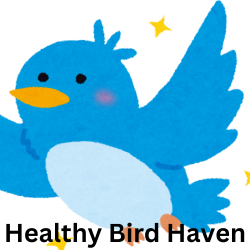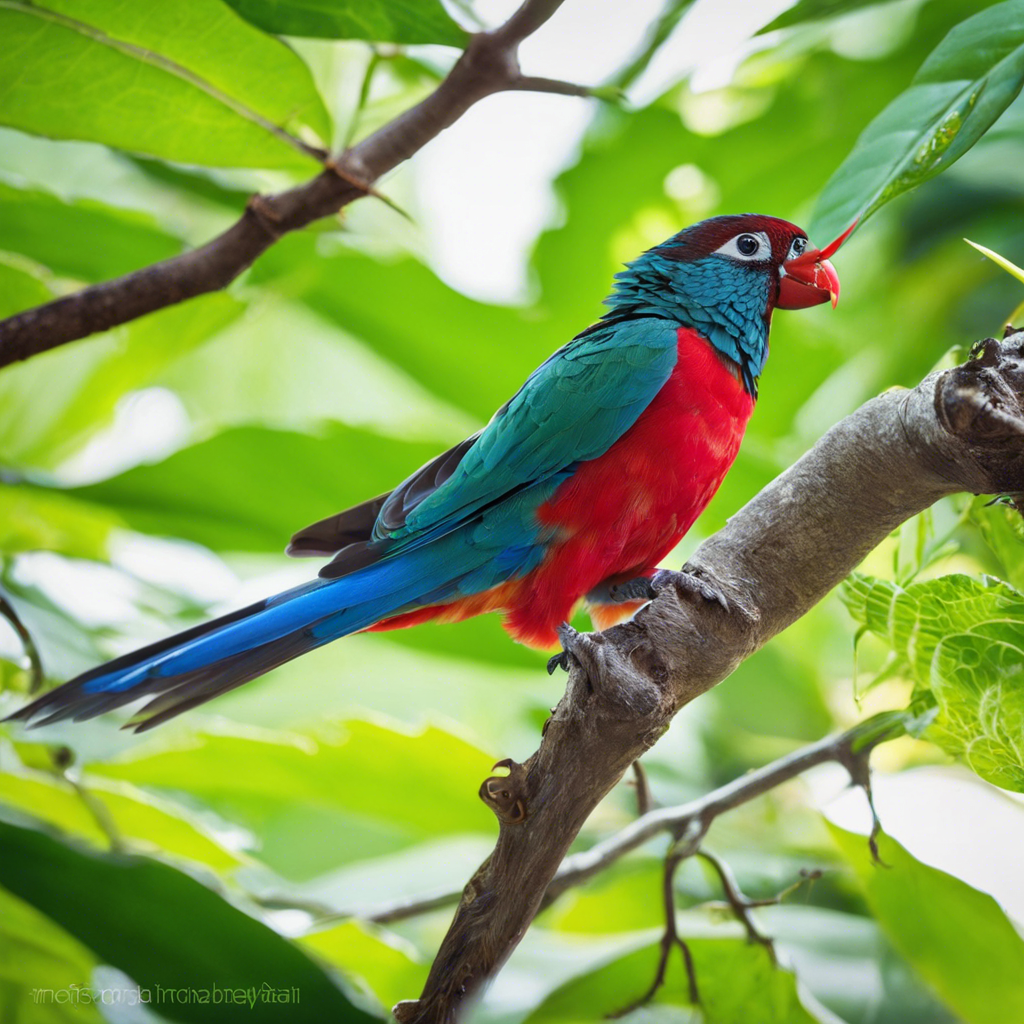Pet birds can make wonderful companions, but they can also be vulnerable to various health issues, including parasites. Parasitic infections in pet birds can range from mild to severe and even life-threatening, so it’s important for owners to be vigilant and informed about prevention and treatment options.
One of the most common external parasites affecting pet birds is the feather mite. These tiny pests live in the feathers and can cause irritation, feather damage, and skin infections. Mites are often visible to the naked eye, appearing as tiny red or brown dots moving through your bird’s plumage. If you suspect a mite infestation, isolate the affected bird and consult your avian veterinarian, who can prescribe an appropriate treatment, typically involving topical or environmental pesticides.
Internal parasites, such as worms, can also take up residence in your bird’s body. These parasites can be particularly dangerous as they may go undetected until the infestation is severe, causing significant health issues. Routine fecal testing is the best way to catch and treat internal parasites early on. Owners should collect fresh fecal samples and submit them to a veterinarian or diagnostic lab for analysis. Common treatments for internal parasites include anti-parasitic medications, which should always be administered under veterinary guidance.
Good hygiene and sanitation practices are critical for parasite prevention. Keep your bird’s cage and surroundings clean and disinfected, removing and replacing soiled bedding or nesting materials regularly. Also, ensure your bird’s food and water are fresh and uncontaminated, and avoid overcrowding, as close quarters can facilitate the spread of parasites. Provide your pet bird with regular baths or showers, and occasional misting or grooming sessions to help keep their feathers clean and healthy, making it harder for external parasites to take hold.
Bird owners should also be cautious when introducing new birds to their flock or bringing home a bird from an avian rescue or shelter. New birds should be quarantined separately for at least 30 days and closely monitored for any signs of illness or parasites. During this period, they should see an avian veterinarian for a thorough check-up and screening for common avian parasites. This precaution will help protect your existing flock from potential parasite transmission.
In addition to routine veterinary check-ups and fecal tests, owners should be vigilant for any behavioral or physical changes in their pet birds that could indicate a parasite problem. Symptoms may include weight loss, lethargy, diarrhea, decreased appetite, respiratory issues, or feather picking. If you notice any of these signs, consult your veterinarian immediately for advice and treatment options.
Dealing with parasites can be stressful for both you and your feathered companion, but with the right knowledge and approach, it’s manageable. Through prevention measures, early detection, and prompt treatment, you can keep your pet bird happy, healthy, and parasite-free. Remember, always seek guidance from an experienced avian veterinarian to ensure the best care for your beloved bird.
To further minimize the risk of parasites, bird owners can incorporate apple cider vinegar into their pet’s diet. The acid content in apple cider vinegar creates an unfavorable environment for parasites, discouraging their growth and establishment. However, it is crucial to introduce this dietary supplement gradually and in small amounts, as excessive vinegar can disrupt the bird’s natural pH balance. Consult an avian veterinarian for advice on the appropriate dosage and method of administration, be it mixed with food or as a diluted solution for water.
Creating a clean and secure environment for your bird to explore and exercise is another vital aspect of parasite prevention. If you allow your bird out of its cage for supervised playtime, ensure that the designated area is thoroughly sanitized before each session. Disinfect perches, toys, and other surfaces with avian-safe cleaners, and remove any debris or droppings promptly. This practice not only reduces the risk of parasite transmission but also prevents the spread of bacterial and fungal infections.
Speaking of dietary measures, a well-balanced and nutrient-rich diet is essential for maintaining your bird’s overall health and resilience against parasites. Offer your pet bird a variety of fresh fruits and vegetables, whole grains, and protein sources such as cooked beans or insect treats. These whole foods provide essential vitamins, minerals, and antioxidants that strengthen your bird’s immune system, making it better equipped to fight off parasitic infections. Consult an avian nutritionist or veterinarian for guidance in crafting a customized diet plan that meets your bird’s specific nutritional needs.
In addition to a healthy diet and supplements like apple cider vinegar, probiotics can be a beneficial addition to your bird’s parasite prevention regimen. Probiotics are live microorganisms that promote a healthy gut flora balance, enhancing digestion and boosting immunity. By including avian-specific probiotic supplements in your bird’s diet, you can increase the population of beneficial bacteria in their digestive tract, leaving less room for harmful parasites to thrive. Consult your avian veterinarian for recommendations on choosing a high-quality probiotic product and determining the appropriate dosage for your bird’s size and species.
Last but not least, bird owners should be mindful of the potential parasite risks posed by wild birds. If you have a backyard aviary or let your bird spend time outdoors, take precautions to minimize contact with wild birds, as they can carry parasites or diseases that may be transmitted to your pet. Ensure your aviary is securely enclosed, with mesh or netting to prevent wild birds from gaining access. Also, discourage wild birds from congregating near your pet’s outdoor space by removing potential food sources, such as leftover seeds or fruits, and consider installing reflective deterrents or noise makers to keep them at bay. By taking these extra steps, you can reduce the chances of parasitic infections in your beloved pet bird.

